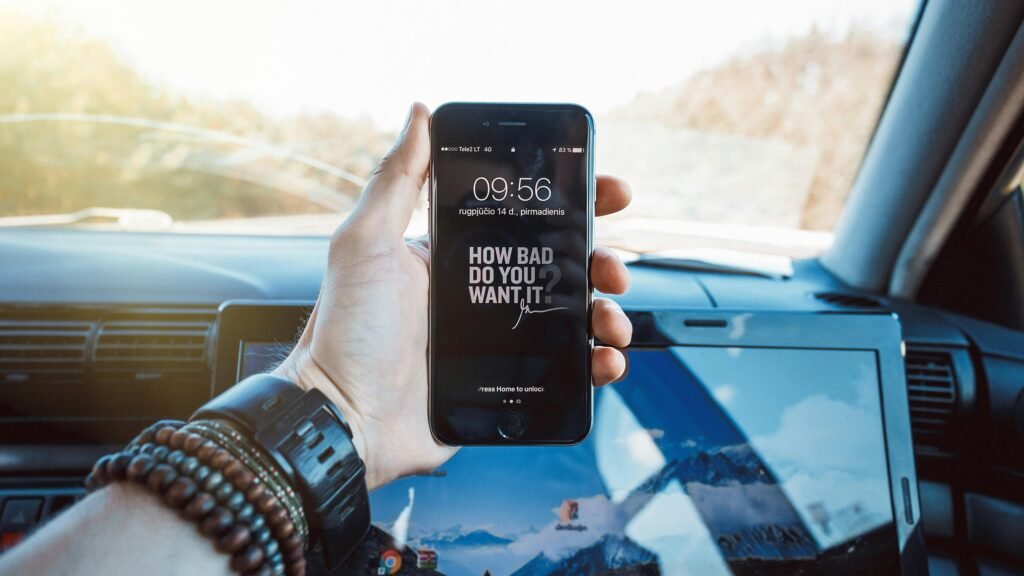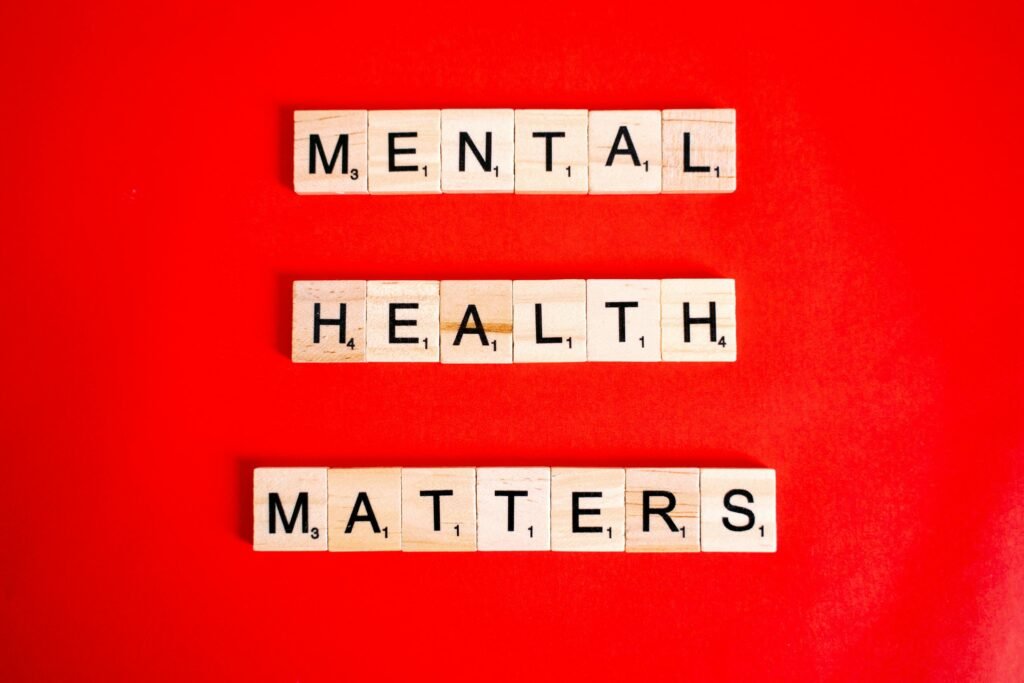
Understanding Instant Gratification
Instant gratification is all about that quick fix.
It’s the rush you get when you get a like on your social media post or binge watch an entire season of your favorite show in one night.
The digital age has made it so easy to satisfy our immediate desires.
No need to wait for a letter in the mail when you can text someone and get a response in seconds, right?
This constant need for immediate rewards isn’t just a small quirk.
It’s actually tied to our brain chemistry.
When we get what we want instantly, our brain releases dopamine, the feel good hormone.
It’s the same one that’s triggered by tasty food, exercise, or even certain addictive substances.
While a dopamine rush feels fantastic in the moment, it can create a loop where you keep seeking out short term pleasures, neglecting long term goals.
Now, this isn’t to say that instant gratification is all bad.
There’s nothing wrong with enjoying a quick win every now and then.
The problem arises when it starts taking over your life.
Think about those times you’ve procrastinated on a big project to scroll through your Instagram feed or the nights you stayed up late watching YouTube videos instead of getting a good night’s sleep.
These habits can mess with your mental well being, making you more stressed and less focused.
Another big player in instant gratification is our environment.
Advertisers know how to exploit this desire for quick rewards.
Ever notice how online shopping sites have “one click” purchase options?
Or how streaming services auto play the next episode?
They’re all designed to keep you hooked.
It’s a strategy that works, but it often leaves you feeling unfulfilled in the long run.
So why do we fall for it?
The short answer is that our brains are wired to seek pleasure and avoid pain.
When you get an instant reward, it feels good and requires little effort.
Delaying gratification, on the other hand, is a skill that takes practice and patience.
It’s like choosing to eat a healthy salad instead of a slice of cake.
The salad benefits you in the long run, but the cake is tempting because it offers immediate pleasure.
Understanding this can help you recognize when you’re falling into the trap of instant gratification.
Once you’re aware, you can start making conscious choices that align with your long term goals.
Instead of scrolling through social media, you could use that time to read a book or learn a new skill.
By paying attention to these patterns, you can start taking steps to balance the need for immediate pleasure with actions that benefit your future self.
Impact on Mental Health

The connection between instant gratification and mental health is profound.
When we constantly seek quick rewards, it can lead to increased anxiety and stress.
The constant cycle of seeking immediate fulfillment leaves little room for patience and tolerance for delayed rewards.
Over time, this can impact our emotional well being, as it creates a mindset that favors short-term gains over long term satisfaction.
Mindfulness-based interventions (MBIs) have shown promise in reducing symptoms of anxiety and depression.
When we let instant gratification rule our lives, it can mess with our ability to enjoy the present.
It often leaves us feeling empty, as the high from that quick reward doesn’t last.
Instead, it can create a cycle where we need more and more immediate rewards to feel good.
This can lead to habits like excessive social media use or binge watching, which contribute to feelings of loneliness and dissatisfaction.
Another major issue is that our brains get used to these quick hits of dopamine, making it harder to feel pleasure from more meaningful activities.
This can lead to a lack of motivation for tasks that require more effort and time but offer greater rewards.
For example, working on a long term project or developing a new skill might seem less appealing compared to the instant satisfaction of a social media notification.
It’s also worth noting that this constant search for quick fixes can disrupt our sleep patterns.
Many people stay up late scrolling through their phones or watching videos, sacrificing rest for the sake of immediate pleasure.
Poor sleep can further impact mental health, leading to irritability, decreased focus, and even more stress.
Mindfulness can be a game changer here.
By being more aware of our impulses and learning to sit with discomfort, we can start to break the cycle of instant gratification.
Techniques like meditation, deep breathing exercises, and mindful walking can help.
These practices train the mind to focus on the present moment, making it easier to resist the urge for immediate rewards.
So, by understanding the link between instant gratification and mental health, and by practicing mindfulness, it’s possible to reduce stress and improve overall well being.
It’s not about completely avoiding quick pleasures but finding a balance that supports long-term mental health.
Strategies to Delay Gratification

To tackle the lure of instant gratification, it’s all about building patience and self control.
Start by setting clear goals.
Whether it’s a personal project or a work task, having a target keeps you focused on what matters in the long run.
Break these goals into smaller, manageable steps.
It’s way easier to tackle a big task when you divide it into bite sized chunks.
Plus, each completed step gives you a little win, keeping you motivated.
Reward yourself for hitting milestones.
It doesn’t have to be anything grand; maybe a favorite snack or a short break.
These small rewards can make the process of delaying gratification feel less daunting.
Over time, you’ll get used to working towards something bigger instead of seeking out immediate rewards.
Take cues from successful individuals known for their self control.
Steve Jobs, for example, was excellent at focusing on long term goals, avoiding the temptation of short term distractions.
You don’t have to be a tech genius to adopt similar habits.
It’s about developing a mindset where the bigger picture is always in view.
Accountability is another powerful tool.
Share your goals with a friend or join a community with similar aspirations.
When others know what you’re working toward, you’re more likely to stay committed.
It’s like having a workout buddy; you’re less likely to skip the gym if someone else is counting on you.
Another helpful strategy is creating a structured routine.
When your day is planned out, it’s easier to avoid falling into the trap of instant gratification.
Schedule specific times for work, relaxation, and tech use. Having a routine can reduce the temptation to veer off track.
Practicing mindfulness can also help you resist the urge for quick fixes.
Techniques like deep breathing exercises, meditation, or even mindful walking can ground you in the present moment.
These practices make it easier to sit with discomfort rather than immediately seeking out a distraction.
Environmental changes can make a big difference too.
For example, if you find yourself constantly checking your phone, put it out of reach or use apps designed to limit screen time.
Creating a designated tech free zone in your home or workspace can also minimize distractions and help you stay focused on what’s important.
Finally, reflect on your progress regularly.
Keep a journal to track what’s working and what’s not.
Self reflection can provide valuable insights into your behavior patterns, helping you fine tune your strategies for delaying gratification.
These tactics might take some time to get used to, but they can significantly improve your ability to focus on long term goals, ultimately leading to better mental health and overall productivity.
Digital Distractions and Focus

Technology has really cranked up the ease of instant gratification, bringing with it a bunch of digital distractions that make it tough to stay focused.
We’re talking about the endless scroll on social media, constant notifications, and the temptation to check your phone every few minutes.
All these can seriously mess with your attention span.
A significant study found that individuals spend nearly 47% of their waking hours in a state of mind wandering, which is associated with unhappiness.
So, what can you do to manage these digital distractions and improve productivity?
Start by setting specific times for technology use.
Like, designate certain hours of the day for checking emails and social media.
Turning off notifications is a game changer too.
Those constant pings can pull your attention away from what really matters.
If your phone keeps lighting up with new alerts, you’re likely to get sidetracked more often.
Creating a designated tech free zone in your home or workspace can also help.
Maybe set up a no phone rule at the dining table or during specific hours when you need to focus.
This physical separation from devices can make a huge difference in your ability to concentrate.
Another strategy is the Pomodoro Technique, where you work for 25 minutes and then take a 5 minute break.
This not only helps maintain focus but also gives you a small window to check your phone without it taking over your entire day.
Accountability can be another powerful tool.
Share your goals with a friend or use apps that track your screen time.
These can serve as reminders to stay committed to your focus goals.
When you know someone else is aware of what you’re working toward, it adds an extra layer of motivation to stay on track.
Practicing mindfulness can also help.
Techniques like deep breathing exercises, meditation, or even mindful walking can ground you in the present moment.
These practices make it easier to sit with discomfort rather than immediately seeking out a distraction.
Environment matters too. If your workspace is cluttered with devices, you’re more likely to get distracted.
Try to keep your workspace clean and organized. A tidy space can help you focus better on the task at hand.
Reflect on your progress regularly.
Keeping a journal can help you track what’s working and what’s not.
Self reflection can provide valuable insights into your behavior patterns, helping you fine tune your strategies for managing digital distractions.
By implementing these strategies, you’ll find it easier to manage screen time and stay focused, ultimately leading to better productivity and mental health.
Building Resilience for Better Productivity

Building resilience and improving productivity go hand in hand, and one key to this is learning to delay gratification.
When you hold off on that quick fix, you’re essentially building mental muscle.
It’s like going to the gym, but for your brain. Take a look at people who are known for their self-control.
They often have routines and habits that keep them focused on long term goals.
Think about athletes who train for years just for a shot at the Olympics.
They don’t let short term temptations derail their long term vision.
Implementing structured routines and setting clear goals can help build similar habits in your own life.
Mindfulness is another game changer when it comes to boosting productivity.
Being present helps you stay focused on the task at hand rather than getting lost in distractions.
The capacity to maintain focus on the present moment is linked to improved psychological well-being.
Practices like deep breathing, meditation, or even a quick walk can ground you, making it easier to tackle tasks without giving in to the urge for immediate rewards.
Let’s talk about practical steps you can take.
Setting up a daily routine is crucial.
Having a structured day makes it easier to stick to your goals and avoid falling into the trap of instant gratification.
For example, start your day with a to do list. Break tasks down into smaller, manageable chunks.
This not only makes your goals feel more attainable but also gives you mini wins along the way, which keeps you motivated.
Accountability is huge.
Share your goals with a friend or join a group with similar aspirations.
Knowing that someone else is aware of what you’re working toward can give you that extra push to stay committed.
It’s like having a workout buddy; you’re less likely to skip your workout if someone else is counting on you.
Don’t underestimate the power of your environment.
If your workspace is cluttered with distractions, it’s going to be tough to focus.
Keep your area clean and organized.
This simple step can help you stay on track and resist the urge for quick distractions.
Regular self-reflection can also be super beneficial.
Keeping a journal to track what’s working and what’s not can provide valuable insights.
It helps you understand your behavior patterns and fine tune your strategies.
If you notice that checking your phone during work hours derails your productivity, make a note of it and adjust accordingly.
By implementing these strategies, you’ll find it easier to stay focused on your long term goals, ultimately leading to better productivity and mental health.
Mindfulness and Self Reflection

Mindfulness and self reflection can seriously up your game when it comes to overcoming the urge for instant rewards.
Engaging in mindfulness practices helps you become more aware of the triggers that lead to impulsive decisions.
Journaling and meditation are powerful tools for self reflection.
They help you spot patterns in your behavior and create better strategies to delay gratification.
For instance, writing down your thoughts and feelings can help you identify moments when you’re most tempted to seek quick rewards.
Once you know your triggers, it’s easier to make conscious decisions that align with your long term goals.
Mindfulness meditation retreats are another way to dive deep into self reflection.
These retreats, which usually last 1 to 3 days, have been shown to reduce anxiety and stress, promoting better overall well being.
Daily mindfulness practices like deep breathing, meditation, or mindful walking can ground you in the present moment.
When you’re more present, you’re less likely to fall into the trap of seeking quick fixes.
Instead of reacting impulsively, you can take a moment to consider whether a short term pleasure aligns with your long-term goals.
Implementing these practices doesn’t have to be complicated.
Start small.
Maybe take five minutes each morning to meditate or write in a journal.
These tiny habits can snowball into significant changes over time.
You’ll find it easier to resist the lure of instant gratification and stay focused on what truly matters.
Creating a dedicated space for mindfulness activities can also make a difference.
Whether it’s a cozy corner of your room or a spot in your backyard, having a designated area can help you stay consistent with your practices.
The more you incorporate mindfulness and self reflection into your daily routine, the better equipped you’ll be to handle life’s distractions and temptations.
By making mindfulness and self reflection a part of your daily life, you can develop greater self awareness and emotional resilience.
